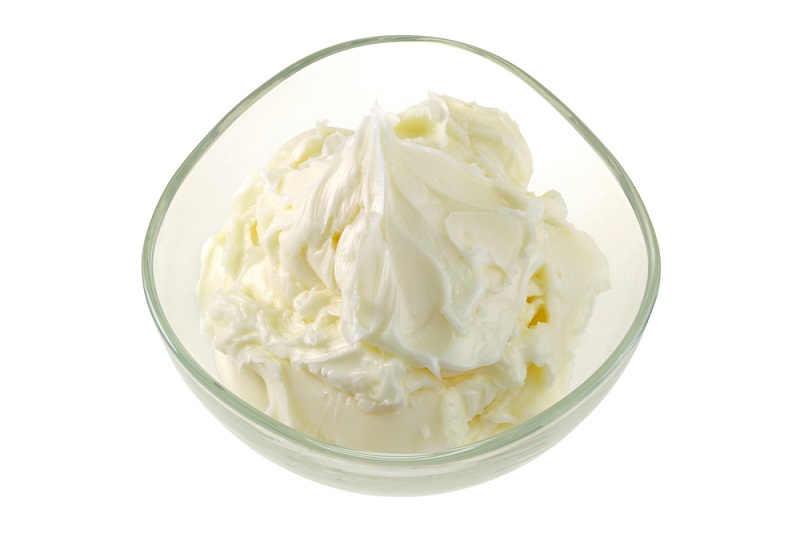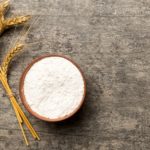Many American recipes include vegetable shortening on their ingredients list. Vegetable shortening is a solid, white fat made from 100% vegetable oils that is used for baking and frying.
Oils have higher melting points than butter, so shortening stays solid for longer than butter when it’s heated.
This makes it great in baking when trying to achieve puffy, flaky pastry with a less buttery flavour.
The main brand of vegetable shortening in the US is Crisco, which is made by Earth Balance.
But what is vegetable shortening called in the UK? Let’s find out so that you can nail your baking recipes and produce the same great results every time.
What Is the UK Equivalent of American Vegetable Shortening?
There are a few brands of vegetable shortening available in the UK, the main ones being Trex and Cookeen. Here is how they compare to US Crisco and which might be best for your baking, frying, and other recipes.
Is Trex vegetable shortening?
Trex is a brand of vegetable shortening and the closest UK equivalent to US Crisco. It’s available at most British supermarkets.
Made from a combination of palm oil and rapeseed oil, it isn’t an exact replica of Crisco; Crisco is made from partially hydrogenated palm oil and soybean oil.
However, as a 100% vegetable oil product, it behaves the same when baking and produces similar results. This makes it a great choice for vegetable shortening in the UK.
Is Cookeen vegetable shortening?
Cookeen is another brand of vegetable shortening available in the United Kingdom. Sold by Princes Limited, this is a true baking fat made from 100% vegetable oils.
It is arguably a better choice than US Crisco as it is made without any partially hydrogenated vegetable oils, thus is healthier for you and won’t upset the balance between good and bad cholesterol in the body.
You can find it in the refrigerated section at most major UK supermarkets.
Is Flora white vegetable shortening?
Like Trex and Cookeen, Flora White is a great UK alternative to US Crisco. As the name suggests, this is a white fat and it is made from 100% vegetable oils like traditional vegetable shortening. Unfortunately, the brand discontinued Flora White back in 2012.
Flora currently only manufactures and sells three spreadable products, none of which are a great substitute for vegetable shortening. Fats that are solid at room temperature work best.
Is Stork vegetable shortening?
Stork is not technically classified as vegetable shortening – it is a brand of margarine. It is made predominantly from vegetable oil, but it also contains 25% water. This gives Stork a softer and more spreadable consistency.
It can be used as a replacement for vegetable shortening in the UK, but its partial water content does mean its melts more quickly than Crisco.
Because of the water content, it will give subtly different results when baking. When used as a substitute, more needs to be added to the recipe to achieve the same fat content.
What Alternatives Are There to Vegetable Shortening?
If you can’t get your hands on Trex or Cookeen (the two main UK vegetable shortening brands in the UK), you might want to use an alternative.
Below are some great options that are available in most British supermarkets:
Margarine
Margarine brands like Stork can be used as a substitute for Crisco. However, because margarine contains water, make sure to add an extra tablespoon for every cup of shortening. This ensures the recipe has the same amount of fat and makes for a better result.
Choose margarine made from vegetable oils rather than animals fats for the closest match to shortening.
Butter

Butter is another good UK substitute for vegetable shortening. Unlike margarine, you can use a ratio of 1:1 when using butter in place of shortening.
However, it will yield a more buttery flavour in your final products and will subtly change the texture of baked goods. This is because butter is made from 80% fat and 20% water, compared to shortening being made from 100% vegetable fats.
Lard
As long as you’re happy to use animals fats in your baking, lard is the best substitute for vegetable shortening.
Like shortening, lard is made from 100% fat. This means it behaves similarly when heated and results in the same flaky pastry.
However, the fat comes from animals rather than plants, so is not a suitable vegetarian or vegan option.
If flavour and texture are what you are after though, lard performs better than shortening, imparting more richness to the final product.

Hannah is a freelance content writer and self-proclaimed foodie. When Hannah isn’t sitting tapping at her laptop, you’ll probably find her in the kitchen. As an ex-chalet host, she’s used to cooking four-course meals for 10+ people and loves feeding friends and family whenever possible.



